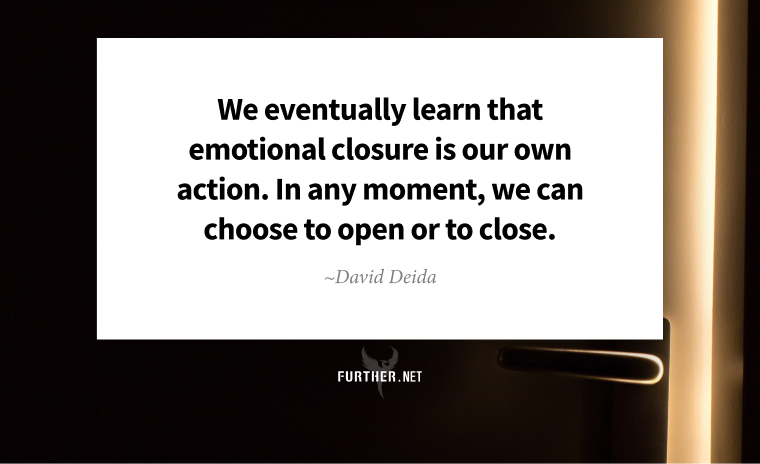
Recently I chatted with a friend who had coffee with his ex. A year earlier, she blindsided him when she broke off their long-term relationship. Today he says he’s found “closure.”
As I listened, I realized it was a classic case of the lips saying one thing but the eyes telling another story. The pain was evident in his watery gaze as he assured me he was “all good.”
The desire to neatly wrap up life’s messy moments is universal — and complex. Looking for retribution from someone who has hurt, manipulated, or rejected you usually leaves you with more questions than answers.
But that doesn’t mean you can’t have closure. You just have to be open to creating it for yourself.
The Limitations of Letting Go
Coming to terms with emotional pain isn’t a simple decision to “let it go.” You’re not solely dealing with pain or trauma but also with your brain’s wiring.
The phrase “closure” was initially coined in 1996 by psychologist Arie Kruglanski. In his research, he explained that humans need definitive knowledge on any given topic where there is confusion. It stems from our very innate need to understand.
That urge can be exacerbated when the person(s) who wronged you isn’t willing, able, or available to respond. The good news is there are scientifically-backed ways to help you cease searching and find peace.
Cracking the Closure Code
First, you must recognize your thoughts about what happened and what could alleviate your pain are a self-generated narrative.
Spoiler alert: you are not the story in your head.
So, the trick is finding ways to rewrite the story. Personal growth coach May Pang offers the following techniques:
- Take back your time: Start by simply reminding yourself that person/situation has already taken up too much time in your life and space in your head.
- Meditate on loving-kindness: A loving-kindness meditation (i.e., Buddhism’s “Tonglen”) invokes positivity and encourages you to send that healing energy to others. Neuroscience research shows this meditation activates emotional processing.
- Write a letter: It can be to yourself, the other person, or both. Say everything you want; find gratitude where you can. Research shows letter writing helps you deal with unfinished business and create a story you can understand.
- Create an ending: Every culture has symbolic ending ceremonies and rituals, so make up your own (i.e., burn the letter you wrote, practice ho‘oponopono). Psychologists say this process is fundamental in creating closure as it helps you regain a sense of control.
Just because something’s ended doesn’t mean it’s case closed — it’s up to you to decide to shut things down. And once you do, you open the door to what ultimately heals you: moving on.
You Can’t Always Get Closure from People You Want It From (Medium: Better Humans)
